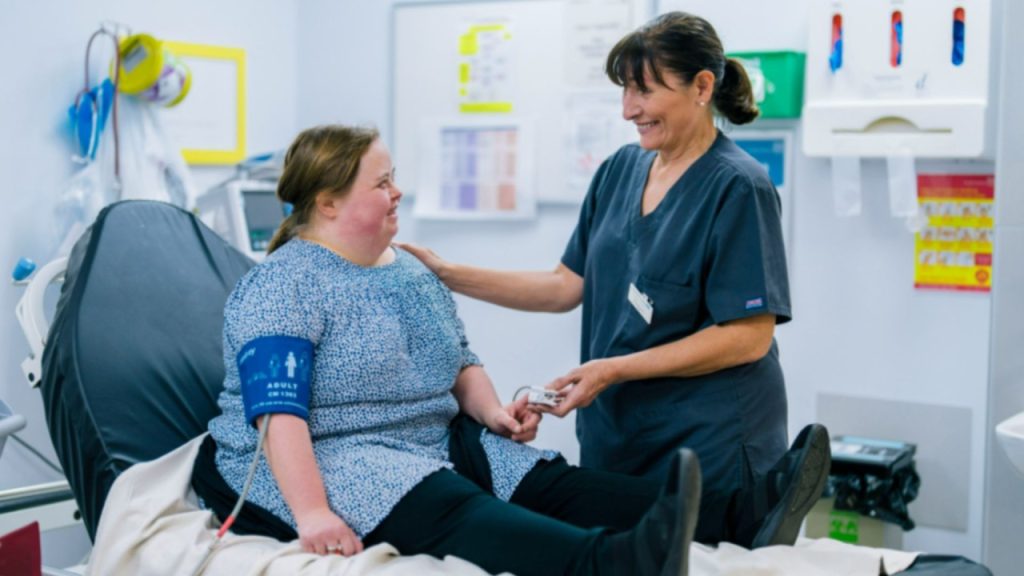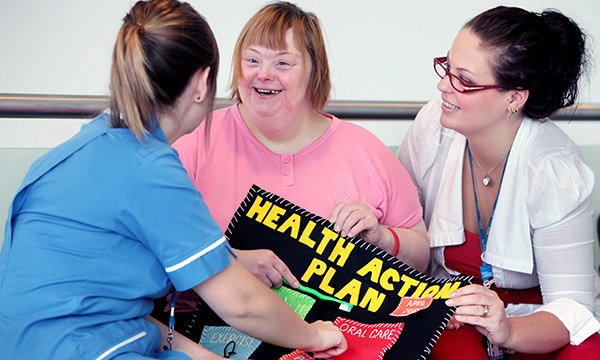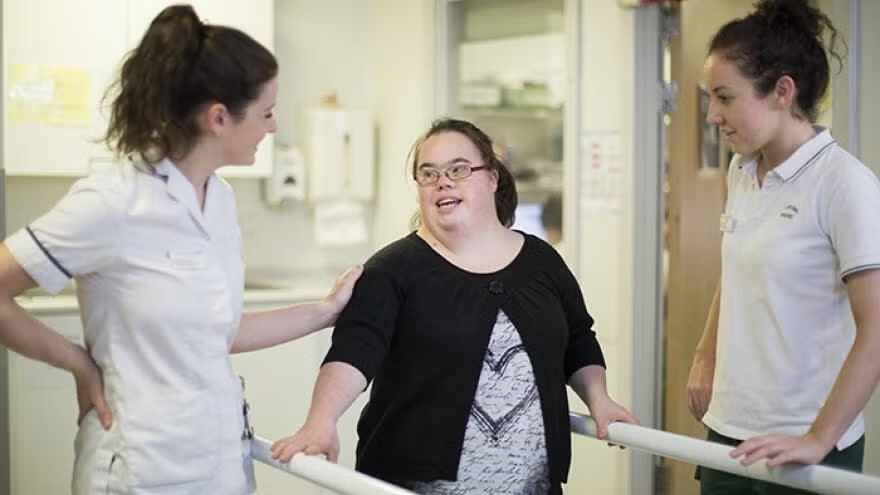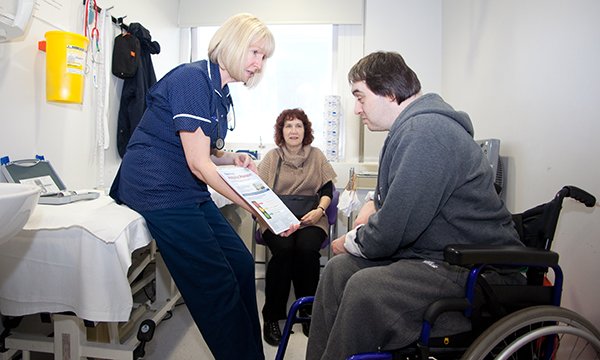
“People with disabilities need health care and health programs for the same reasons anyone else does—to stay well, active, and a part of the community.
Having a disability does not mean a person is not healthy or that he or she cannot be healthy. Being healthy means the same thing for all of us—getting and staying well so we can lead full, active lives. That means having the tools and information to make healthy choices and knowing how to prevent illness.
For people with disabilities, it also means knowing that health problems related to a disability can be treated.” [1]
“People with disabilities have poorer health than the general population. Annual Health Checks have been introduced to improve morbidity and mortality in this group.” [2]
“People with disability do not always know when they are ill or need to see a doctor. They may not be able to tell people that they feel unwell or different.
During the check, the healthcare professional will ask the person about their lifestyle; what food they eat, whether they drink or smoke, and what exercise they do. The healthcare professional may recommend health tests, check for other illnesses and ask about known problems such as epilepsy.” [3]
The Annual Health Check is a chance for the doctor, the person with disability and those who support them (if relevant) to review the individual’s physical and mental health.” [3]

What happens during the annual health check?
“You might see different health professionals. These might include a doctor, a pharmacist, a nurse or a healthcare assistant. They have all had extra training to be able to do the health check.
During the health check, the health professional will:
- do a physical check-up, including weight, heart rate and blood pressure.
- they may ask to pee in a small pot for them to check your urine or ask you to have a blood test.
- talk about staying well and if you need any help with this.
- ask about things that can be more common if you have disability, such as epilepsy, constipation or problems with swallowing (dysphagia), or with your eyesight or hearing.
- talk to you about medicines to make sure the patient are being given the right medicines when needs them.
- check to see if vaccinations are up to date.
- check how you are feeling if you have a health problem such as asthma or diabetes.
- check to see if patient have any other health appointments.
- ask if the patient’s family or careers are getting the support they need.” [4]

How can DSPs help to make the Annual Health Check a positive experience?
“It is Important that the person DSPs support; feels as relaxed as possible, is given time to talk about their concerns, and has someone present that they trust to support them if they choose.
- Try and help them to understand the importance of their Annual Health Check and to prepare for it. https://www.youtube.com/watch?v=z8407Uzys3E
- Try; talking to them about what they might like to ask the doctor, or how they feel about their health.
- When visiting the doctor’s surgery, we recommend speaking to the doctor or healthcare practitioner about the reasonable adjustments and support a person with learning disability might need to access health services more easily.” [3]
Making reasonable adjustments for disabled people
“The NHS has to make it as easy for disabled people to use health services as it is for people who are not disabled. This is called making reasonable adjustments.
Ask the doctor if patient need any reasonable adjustments, such as:
- using pictures, large print or simpler words to say what’s happening.
- booking longer appointments or having a carer with patient.
- putting an appointment at the beginning or end of the day, if patient find it hard to be in a busy waiting room.
- The reasonable adjustments you need should be written down in a health profile or health action plan that the doctor or nurse can use.” [4]

“It is important to make sure that clear actions come out of the Annual Health Check, which are agreed by the doctor and the person a DSP’s support. DSPs should be given a health action plan, which sets out; key actions to take, and helps to ensure there is ongoing support for the person’s health and wellbeing. It is helpful if these actions can be reviewed regularly to ensure progress is being made.” [3]
Resources
[1] https://www.cdc.gov/disability-and-health/health-well-being/index.html
[4] https://www.nhs.uk/conditions/learning-disabilities/annual-health-checks
